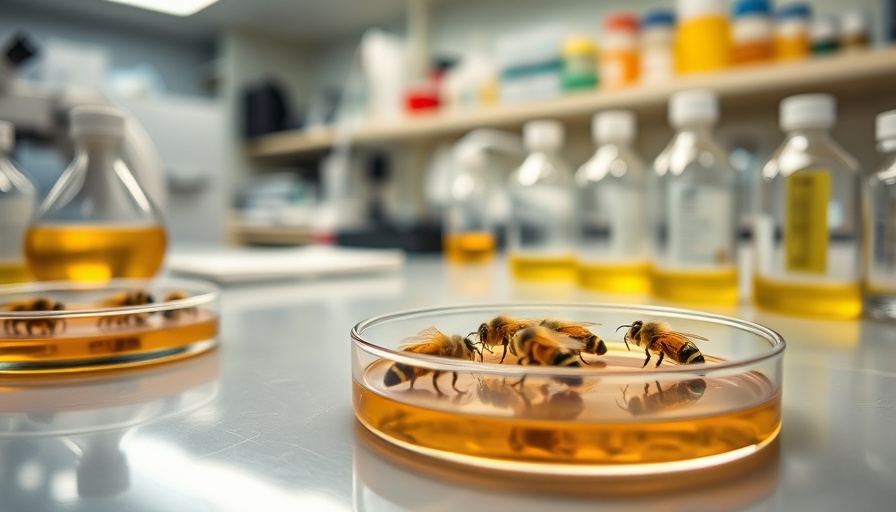
Revolutionizing Honey Bee Research with P-Cup Arenas
Honey bees, vital to our ecosystems and agriculture, are facing unprecedented challenges from pesticides, climate change, and habitat loss. Recognizing this urgency, researchers at the USDA Agricultural Research Service have innovated a new method for studying these crucial pollinators: the development of cost-effective and disposable P-cup arenas.
What Are P-Cups?
The P-cup arenas, crafted from small Petri dishes, serve as a simplified environment for experiments on honey bee biology. This approach offers significant advantages over traditional hoarding cages, including reduced costs and improved bee survival rates during studies. Each P-cup is designed with easy access for the bees to food sources, eliminating issues with accessibility commonly associated with traditional feeding mechanisms.
Dr. Jay Evans, a leading scientist in the USDA Bee Research Lab, explains, "Our best breakthrough was in the feeders... all the bees can reach the food, even newly emerged bees or less healthy bees.” The use of these small arenas maintains adequate nutrition and environmental conditions, crucial for the health of the bees being studied.
Why This Matters
Honey bees are not just important for honey production; they play a critical role in pollinating flowers, fruits, and vegetables, making them indispensable to global food systems. With their populations steadily declining, enhancing our understanding of their biology becomes paramount.
The P-cup method allows researchers to investigate the impacts of various factors on bee health and behavior more effectively than previous methods, thus fostering advancements in ecological and biological applications in bee research. In turn, this research can inform better conservation strategies and agricultural practices to support bee populations.
Future Implications for Homeowners
For homeowners interested in sustainability and gardening, findings from bee research directly affect their gardening choices. Understanding the factors that contribute to bee health enables gardeners to create pollinator-friendly habitats, promoting biodiversity and healthy ecosystems in their own backyards.
Take Action for Bees!
Homeowners can contribute to honey bee conservation by planting diverse flowering plants, reducing pesticide use, and supporting local beekeepers. By being proactive, we can all play our part in safeguarding these essential creatures and, by extension, our environment.
 Add Row
Add Row  Add
Add 


 Add Row
Add Row  Add
Add 

Write A Comment